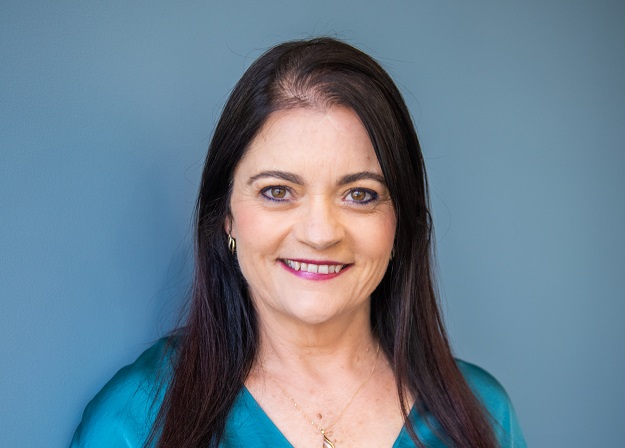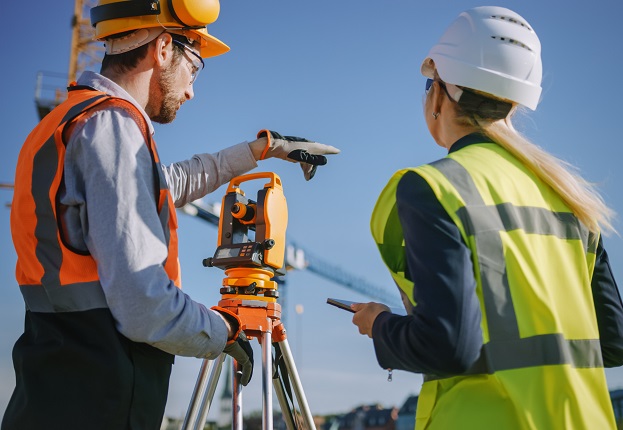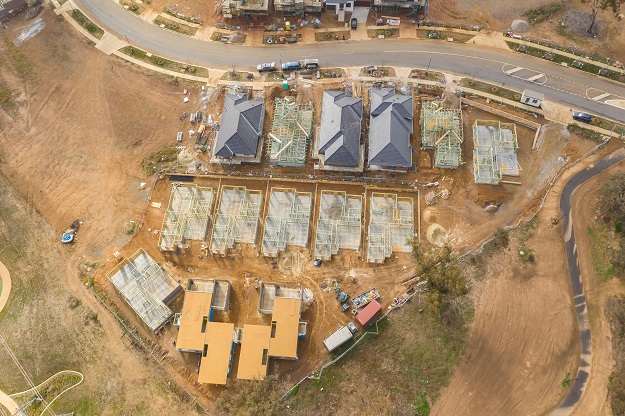
Michelle Blicavs, CEO, Association of Consulting Surveyors National
The surveying sector faces a number of challenges but also has a lot of strengths, says the CEO of CSN.
Michelle Blicavs is Chief Executive Officer of the Association of Consulting Surveyors National, an industry body that represents businesses that are in surveying, such as consulting surveying firms. She’s also the CEO of the state body for NSW, Consulting Surveyors NSW.
Now four years into the roles, she came with a background as a local government councillor, having spent six years from 2011 with Wollongong City Council. “I understood about the DA process, I understood about property development, land development, green-field subdivision, building apartments and strata,” she says. “That was where my knowledge and experience came from.”
Tell us about CSN and its roles and goals
The Association of Consulting Surveyors National was formed in 2011 to promote the profession of surveying, representing and supporting the interest of surveying consultancies through relevant training and connection to build business acumen.
Surveying is historically where it all started. As technology has bounded ahead, the role of the surveyor has changed and the business of surveying has expanded to embrace planning and engineering and other allied professions. But we’ve always had surveyors, we’ve always measured boundaries, and created places for people to live. Surveying remains a huge part of any civilisation.
All of our first explorers in Australia were surveyors. We’re very proud of saying that Thomas Mitchell and George Washington were surveyors. Countries around the globe were founded by surveyors because surveyors were the first explorers.
So what does that mean for us in 2022? It means that surveyors are still doing that exploration. A surveyor is the first person on any job site and they’re often the last person to leave. So when the government gets an idea that we need to build a bridge or we need to build a tunnel or we need to build a road, the first person they have to engage is a surveyor.
ACS has always been strong on advocacy and communication, and our partnerships with the Australian Chamber of Commerce and Industry, the Australian Construction Industry Forum and the Property Council of Australia provide significant value to our members. With a seat on the employment and skills committee in ACCI, we were able to advocate on the skills shortage that saw surveyors returned to the Priority Migration Skilled Occupation List (PMSOL).
Anything that’s impacting surveying companies and the broader industry, that’s what CSN will take on. The skills shortage has been confirmed by our research and delivery of the demand for skills in geospatial profession study. We use that document regularly and we’re having requests now to have it updated, because of COVID. Our connections with government at a federal level, but also at various state levels, ensure the government knows who surveyors are and the value they add to the Australian economy.
What do you see as the biggest challenge facing the sector?
The biggest challenge continues to be the skills shortage. The skills shortage has been a challenge for more than 10 years in surveying and spatial. Now, most professions and most employers are facing skill shortages. But we are fortunate in surveying that we have been tackling this issue for 10 years, through the Surveying Taskforce. We’re the distributor in Australia for Get Kids into Survey and have strong connections with schools to help promote the profession.
The Surveying Taskforce operates in a majority of Australian states. There’s also a national alliance where we come together and share information and reduce duplication. We’ve just launched a new website, www.surveyingcareers.com.au. It’s been developed to promote and encourage kids to choose a career in surveying. We offer work experience, and we regularly have surveyors go into schools to talk about surveying and promote surveying and spatial information as a career path. We’ve been doing that for 10 years. That means that we have a steady stream of kids coming through the profession. It is working — very slowly, but it is working.
In NSW, we have a partnership with the NSW Department of Education, and in 2022 a new iSTEM subject, ‘Surveying your World’ will be piloted. We expect potentially some 10,000 year 9 and 10 students will have the opportunity to undertake that course. Whether they choose to go into surveying as a career, at least they’ll have knowledge of what surveying is and how it works in the real world.
Once someone has chosen to go into surveying, what hurdles do they face?
The biggest hurdle is the length of time it takes to become a surveyor. It’s a four to five years at university, and if you start in vocational education there may be an additional one or two years. After you receive your degree most states require two years practical experience before you enter the registration process which is often a further two years. So it can be six to eight years to become a registered or licensed surveyor.
Every state is slightly different in the registration process, but the time that it takes to get through that process is a challenge for the industry and something that the surveyor’s boards are currently reviewing alongside industry. Consulting Surveyors National will certainly make strong submissions towards any consultation around changes to these processes on behalf of our member firms.

©stock.adobe.com/au/Gorodenkoff
What are the job prospects for graduates?
The majority of students are snapped up by the end of their first year at university, and they work in the holidays and study during term. The majority of surveying students in the country are currently being trained through the University of Southern Queensland, and that’s remote learning. But it’s part time, so it can take them eight years while they’re working fulltime and studying part time.
How about TAFE and its role?
We are seeing a challenge in the training of technical or engineering surveyors, and that’s because that training path has always been mainly only through TAFE. Unfortunately, TAFE programs are shutting down in a number of places. There are currently no TAFE courses in the Northern Territory or Tasmania, and haven’t been for some time. The course in the ACT shut down in 2019 and the course in Queensland shut down in 2020. There’s nothing in NSW north of Newcastle, and if you want to study in Victoria you can only go through RMIT in Melbourne.
This is a significant issue for the industry. Consulting Surveyors National has taken the initiative to launch the Surveyors Academy, which will be teaching the Certificate IV in Surveying and Spatial Information and the Diploma in Surveying in 2022.
We’ve partnered with the University of Southern Queensland and the Surveyors Trust, and partnered with a Registered Training Organisation for the delivery. We have employed a qualified educator who is renowned across industry. Peta Cox has been employed fulltime to develop the course content, connect with teachers and engage with potential students and their employers.
In February we have almost 100 expressions of interest to take part in this course, which will be offered nationally. The courses will offered through employers and it will be teacher-led, on-the-job learning. The delivery is designed to ensure that students are available for work, but given time to study.
CSN is happy to take the lead on this, but this is an industry need and an industry challenge, and we look forward to working with SSSI and other partners around the country to deliver this course and ensure we have the trained, skilled professionals that we need.
What about diversity? Does the sector have work to do in this regard?
We do have a diversity issue, and it’s not just a lack of women — it’s diversity of race as well as gender. But I am seeing more diverse students coming through the registration process; certainly in NSW. So that’s encouraging to see. But we may need to consider streamlining the process, without lowering the standard, to support international surveyors through the process. We look forward to the current process being discussed around competency standards. We have a number of partnerships internationally and we would love to see where we could potentially share skills across countries.
Automatic mutual recognition presents some challenges but also opportunities for our industry to diversify and review our processes.
The other challenge is having surveying recognised in its professional standing amongst other growing professions. Particularly when it comes to the prices and fees that we charge. I get calls in my office saying, “Oh, I’ve just realised that I need a surveyor on my site — can you get somebody here today?” Now, you don’t call your lawyer and ask, “Can I get in to see you today?” You don’t call your oncologist or your heart surgeon and expect that you will get an appointment today. You make an appointment six weeks out. Yet in surveying there’s this expectation that you can just call them up, they’re not doing anything, they can just drop tools and come and service you. You can’t get a plumber of builder to come right away. Surveying’s no different.

©stock.adobe.com/au/Steve
Are surveyors not seen as being in the same league as other professionals?
Surveyors, in my view, are salt of the earth. They are on site when needed, they do their job, they do what’s needed — they’re absolutely the best problem-solvers on the planet. The nature of a surveyor means they’re not outspoken, they don’t speak up and they don’t push their agenda and they don’t push their own barrow. As a result, other professions have pushed forward.
There are some changes happening in NSW in planning legislation, but again it’s potentially knocking surveyors out. The government needs to be aware of who surveyors are and what they do and the value they add. Surveyors tell stories of firms charging the same rates as they were 10 years ago. I can’t buy milk for the same prices as 10 years ago. Why can I buy a surveyor’s time for the same rate as 10 years ago?
What can be done to solve this problem?
CSN does a national hourly rates survey to evaluate what the rates are around the country, and we also do a national salary survey to evaluate the current salaries paid around the country. The variation can be quite dramatic. This is a real challenge for the industry because part of the problem is that surveyors don’t appreciate their own value. I’ve heard stories of people who say, “I have a device now that makes it faster and easier to do the job, therefore I’ll charge less”. That device can cost upwards of $100,000!
Surveyors go to university and they learn how to be fabulous surveyors – the best surveyors in the world come out of Australia. But what they don’t learn is how to run the business. There is an expectation that once you get your registration or licence, that you should then run the business. But nobody’s taught them how to run the business. So one of the things we’re doing to take the lead and combat this problem is via education through the ACS Business Academy.
We’ve graduated about 40 surveyors from our Business Academy in the last two years. They get the post-nominals GACS, Graduate of ACS. And we are teaching them key business skills — profitability, managing people, risk, marketing, strategy, financial management — taught across a six-month period. They’re taught by highly qualified professional people including surveyors who are recognised for operating the most successful surveying firms. It’s a course that’s been developed by the industry for the industry.
The problem when you do a management degree or any sort of management training, they teach you stories from Apple and Kodak and Microsoft and Google, which is just not very relevant for surveyors. So we teach surveying company examples and we provide them with a number of resources that really help them grow and expand from current management and business thinking. And we see some fabulous results as our surveying firms grow and expand and get better policies in place, better procedures, and ultimately become more profitable.
How do you see 2022 lining up for CSN?
It’s a fabulous industry. Our tagline at CSN is ‘Vital to Australia’s development,’ and we absolutely believe that. And we’re encouraging surveyors everywhere to stand up, to be proud of the profession that they are a part of, to speak out boldly about who they are and what they do. If they’re not sure how to do that, come and talk to us — we’d love to help them.
The other thing that we’re very strong on is bringing our members together and trying to ensure that they can gather and share and discuss across state borders. We like to gather people together nationally, and we’ll be doing that in June 2022 at our conference in Port Douglas. We’re very pleased that we often manage to have most of the Surveyors-General together each year to discuss what’s happening more broadly across the sector. And that’s a very important thing — that we don’t just get together in our regions or our states, but that we do actually come together across state borders to have the discussion about how we can uplift the profession to ensure that we have a strong surveying industry into the future.
Stay up to date by getting stories like this delivered to your inbox.
Sign up to receive our free weekly Spatial Source newsletter.







